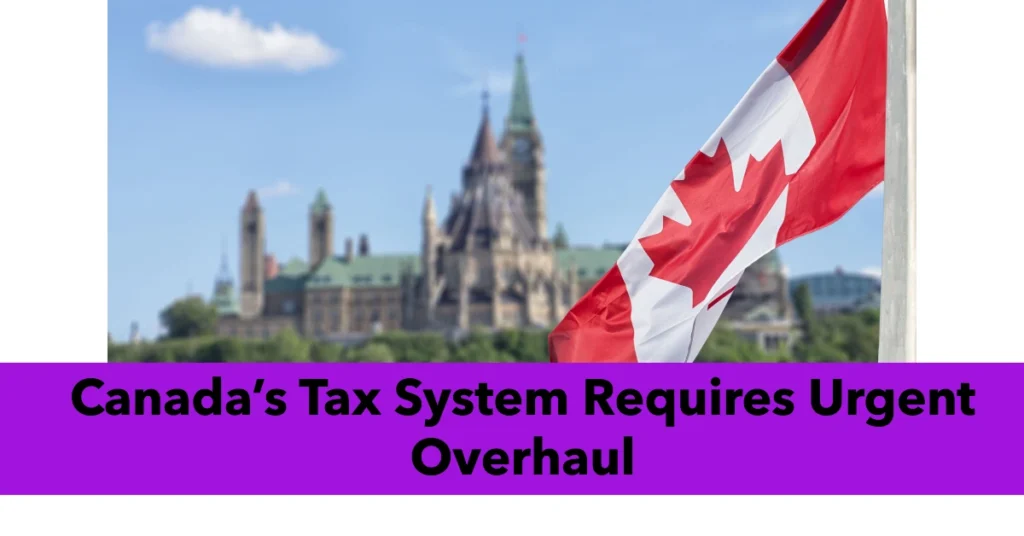Compared to other countries in the Organization for Economic Co-operation and Development (OECD), Canada relies heavily on personal taxation revenues. In fact, personal income taxes generally account for around 50% of the country’s total government revenues, though this figure can vary annually. Any reduction in personal tax rates could significantly impact these revenues, which is why the federal government tends to raise taxes instead. This was evident in 2016 when a new high-income tax bracket was introduced to make the wealthy “pay a little bit more.”
The Complexity of Canada’s Tax System
Canada’s tax system has become extremely complex over the past decade, leading to inefficiencies and poor administration by the Canada Revenue Agency (CRA). The complexity has made it difficult for accountants and lawyers to provide accurate tax advice, and many Canadians struggle to understand the tax rules themselves. This system, coupled with poor policy decisions, has contributed to economic stagnation and the outflow of successful Canadians seeking friendlier tax environments.

Advocating for Tax Reform
Economists like Jack Mintz have called for a “Big Bang” reform of corporate taxes to boost Canada’s economic growth and attract investment. Mintz’s proposal, inspired by Estonia’s tax system, suggests a complete overhaul of Canada’s taxation system. While the current government seems reluctant to act, the opposition Conservatives have promised to establish a Tax Reform Task Force within 60 days if they win the next election.
The Case for Broad-Based Personal Tax Reductions
Canada’s personal tax rates are among the highest in the world, especially in comparison to the United States. While Canada may never be able to match the U.S. in tax competitiveness, there is potential to narrow the gap. Many Canadians argue for a flat personal income tax rate to simplify the tax system and reduce compliance burdens. A flat rate could make calculating taxes easier and eliminate complex deductions, but it also presents risks.
The Challenges of a Flat Tax System
The main concern with a flat tax rate is that it could be regressive. For example, a single flat rate of 20% would have a disproportionate impact on lower-income taxpayers compared to wealthier individuals. Similar challenges exist with the Goods and Services Tax (GST), which affects low-income households more than high-income ones. To address this, the GST was designed to exempt basic necessities like food, clothing, and healthcare.
Can Canada Implement a Fair Flat Tax?
Could Canada design a flat personal income tax system that avoids the regressive effects typically associated with such systems? While a flat rate might seem simple, the solution may require a multi-tiered structure (such as a dual-rate system) to ensure fairness. Canada must also consider the impact on government revenues, which could be offset by cuts in wasteful spending. If implemented, a flat tax could make Canada more competitive for talent and encourage economic growth.
Lessons from Estonia’s Tax System
Estonia has successfully implemented a flat-rate personal income tax system since 1994, contributing to its strong economic performance. Canada could look to Estonia for both positive and negative lessons on how to structure a flat tax system. Though there will be critics of such a system, particularly those with left-leaning viewpoints, it is crucial to critically assess the potential benefits and drawbacks to find a balanced solution.
Major Changes to Canada Work Permit Regulations 2024 – No Cash Jobs
International Students in Canada Can Now Work 24 Hours a Week Off-Campus: What You Need to Know
IRCC going to Implement New Application Fees From December 1: What You Need to Know
Major Changes to Canada-U.S. Border Service Hours Effective January 6, 2025
The Path Forward
The next federal government should consider bold tax reforms to make Canada’s tax system more competitive and efficient. While a “Big Bang” reform of both corporate and personal taxes may seem ambitious, it could be the key to securing a prosperous future for Canadians. With the right adjustments, Canada can implement a tax system that reduces complexity, attracts investment, and allows all Canadians to keep more of their hard-earned dollars.
